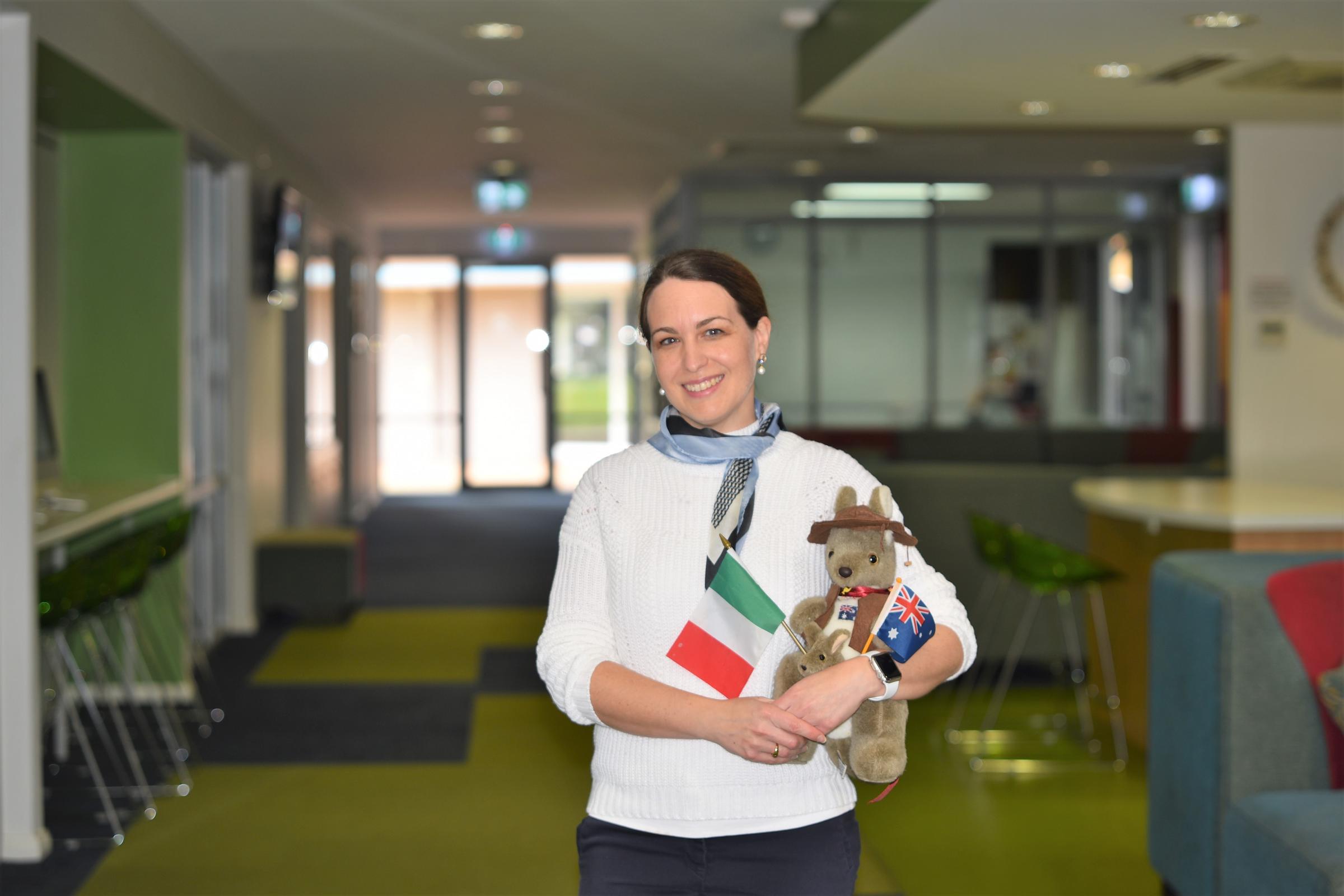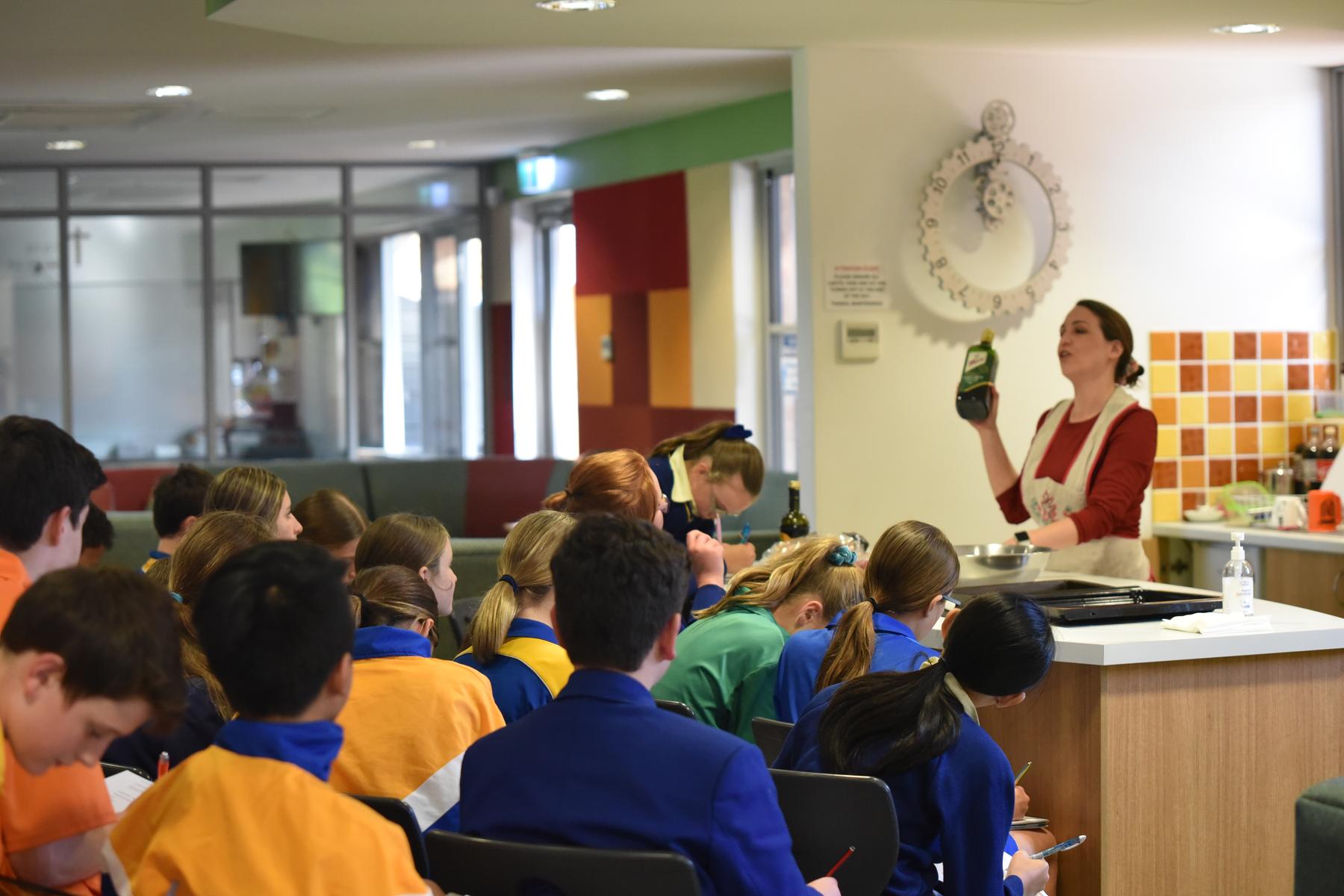Staff in Focus
"Personale in primo piano!"

Staff in Focus
"Personale in primo piano!"
Mrs Cynthia Villarosa grew up in Perth and has been a teacher of Italian at St Norbert College for 14 years. Mrs Villarosa is a mother of two and in her spare time she enjoys reading and practicing Yoga.
St NORBERT NEWS: Ciao signorina, come stai oggi? (Hello Miss, how are you today?)
CV: Bene, grazie! Well, thank you! Actually, students at secondary schools in Italy call their teacher professoressa or professore, or simply Prof for short, so that’s what the students at St Norbert College call me!
SNN: Professoressa, please tell us about your background and connection to Italia . . .
CV: It always surprises the students to learn that I’m not Italian or of Italian descent. I started learning Italian in high school, just as many of our students do and just fell in love with the language and culture. For the students I always like to use myself as an example of how far you can go in learning a foreign language.
SNN: Where did you learn fluent Italian?
CV: In Italy! After high school I continued studying Italian at the University of Western Australia, which had an agreement with L’Università degli studi di Bergamo, a university in the city of Bergamo in the north of Italy, and I was lucky enough to complete part of my course there. It was in Italy, living everyday life, that my grasp of the Italian language became proficient.
SNN: Why did you decide to become an Italian language teacher?
CV: I love learning languages and engaging with different cultures and sharing this with others. I love the way that languages influence one another and applying skills learned in one language to learning another. Teaching Italian was a way to continue doing what I love and it’s a career path that I am glad that I chose.
SNN: What is it about Italy that you love the most?
CV: You could spend a lifetime in Italy and never see all of it or experience every perspective. I love the Italian people and their attitude to life, their social nature and the way they seem to have energy that lasts all day (maybe it’s the good coffee). Italians are also very proud of who they are and what they have to share with the world and I guess I admire that.
SNN: Most people associate Italy with delicious food. What’s your favourite dish or traditional ingredient to eat?
CV: Every part of Italy has dish worth mentioning. I love making la pizza and le lasagne with my kids. They might take all day to make, but it’s always worth it!
SNN: During Languages Week earlier this month your students created pizza dough and bruschetta and tried Italian breakfast foods like fette biscottate and cornetti in the Cappenburg Building kitchen. How does cooking Italian food enhance students’ learning?
CV: Firstly, it’s fun! Secondly, I think it’s important for students to get a (literally) hands on experience of the language. The activities are linked to curriculum, whether it’s ordering food in a restaurant or applying their knowledge of Italian verbs to cooking a recipe. Food is also one of those things that has a universal importance to all cultures and this enhances the students’ cross-cultural understandings.




SNN: What makes the Cappenburg Building such a great place in which to work?
CV: In 2009 St Norbert College won a federal government grant for Excellence in Languages Education. The $2.1 million was used to create the amazing centre we have today. The Cappenburg Centre was built specifically for the teaching of Languages with small glass rooms for smaller classes and speaking assessments, couches where students can sit and practice speaking a foreign language in a relaxed setting and the demonstration kitchen where we can make culturally specific foods with the students. It’s a wonderful building to teach in which the whole College enjoys.
SNN: Why should students persevere with a language?
CV: It’s so important that students have the opportunity to learn a foreign language. Learning a language has enormous benefits for improving literacy. How can you learn a foreign language without first breaking down your own? When I teach grammar in Italian, I teach the English first and I find that students really benefit from and appreciate this. Learning a language also has benefits for numeracy! When learning grammar, we activate our maths brain as we have to draw connections and work things out in a mathematical way, categorising as we go. We don’t just study languages to learn the language, we study languages to build our brains and strengthen other areas or study. Beyond this, I believe that cross-cultural engagement is an important part of life that helps our young people to grow as part of a modern world.
SNN: What is your favourite Italian saying?
CV: Forza e coraggio che il male è di passaggio!
An Italian Language assistant taught me this one. It’s a little rhyme that translated means “Strength and courage that the bad times are going.” It’s something you say to yourself when things are tough, knowing that you are going to get through it, a saying that I’m sure has been said many times in Italy over the past year and a half!
Grazie mille Prof, Ciao!!
Mrs L Quartermain
(Community Relations and Marketing)